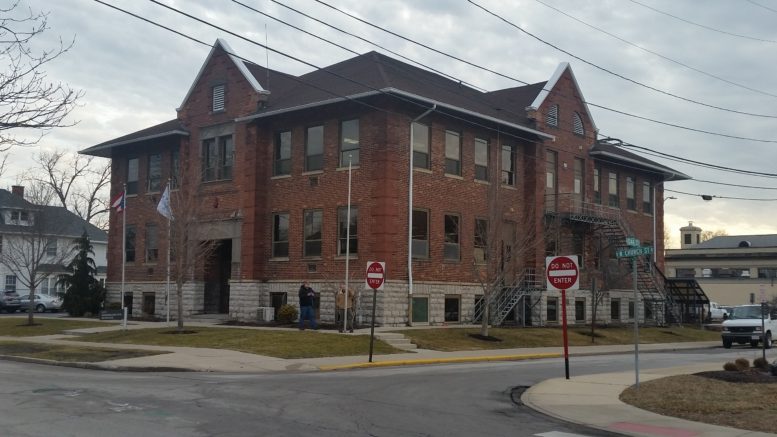By JAN LARSON McLAUGHLIN
BG Independent News
Bowling Green City Council made no promises this week to continue the fight against the Nexus pipeline.
Earlier this month, council voted unanimously to deny an easement request for the Nexus pipeline to cross 29 acres of city land located in Middleton Township, about 2.5 miles east of the city’s water treatment plant.
Council’s stand was cheered by well over 100 pipeline protesters present at the meeting.
But many realized that the excitement of a small community triumphing over a big pipeline company was likely just a temporary coup.
This week at city council, Bowling Green resident Neocles Leontis asked council about the next steps planned to oppose the pipeline. The company does not yet have eminent domain authority, but is actively pursuing that power.
Council President Mike Aspacher said he had not spoken with fellow council members or city administration about future actions to halt the pipeline.
Though the unanimous vote against the pipeline was definitely a feel good moment for the city – council also has to face the hard realities of its budget. And that budget doesn’t leave room for a costly court battle against the natural gas line, Aspacher said.
“My personal feeling is, I would be very reluctant to take any legal action to stop the process,” he said.
Last week, city council and administration had its first look at the complete budget figures for next year. The budget is already tight, and a court fight would be costly, Aspacher added.
During the last council meeting, council member Daniel Gordon said the pipeline company currently does not have eminent domain powers because it has not yet proven the benefits it would bring to Ohio communities.
“I’d personally like to see them not get eminent domain,” Leontis said.
However, City Attorney Mike Marsh has warned that any battle against eminent domain would be a futile and expensive venture.
The 36-inch Nexus natural gas pipeline is proposed for 255 miles from fracking fields in eastern Ohio, across the state, to Michigan and ending in Canada. Along its route, it will pass through Wood County, north of Bowling Green, then go under the Maumee River downriver from the city’s water intake. Once it gets to Waterville Township, a compressor station is proposed.
The city’s acreage is currently rented out for farming, and has two Toledo Edison electric easements already on it. The Nexus pipeline was planned adjacent to those easements. Nexus had agreed to pay the city $151,000 for the easement – but that was prior to city council’s rejection of the request.
Council members Bruce Jeffers and Sandy Rowland both said they would be interested in seeing further information on safety and environmental concerns about the pipeline project.
Prior to the vote against the easement, Jeffers said he was swayed by concerns from a respected local geologist, Dr. Bob Vincent, who has asked for a study of the ground where the pipeline is proposed by the Maumee River.
Rowland said her “no” vote was based on her overwhelming suspicion of information presented by the pipeline officials about tax revenue for the region, employment created by the project and benefits to the city and its residents.





